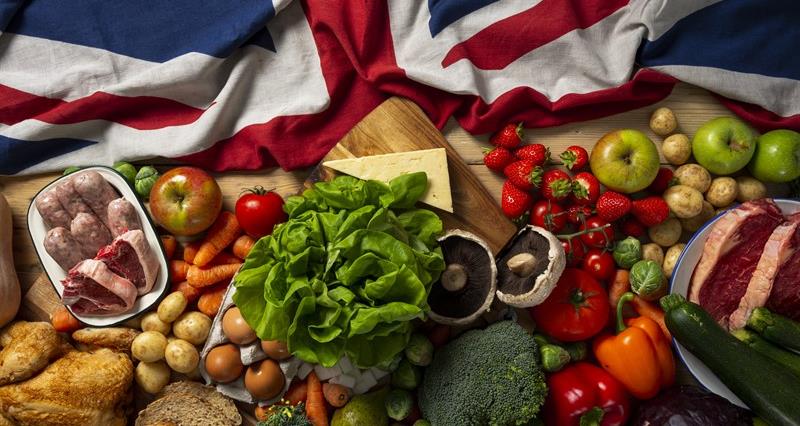The NFU has welcomed the government’s new food strategy, but has stressed that it must be translated into ‘joined-up and pragmatic policy measures’.
The government’s new framework published earlier this week, known as the ‘Good Food Cycle’, identifies 10 priority outcomes aimed at driving a ‘generational change’ in the UK’s relationship with food.
These key outcomes include:
- An improved food environment that supports healthier and more environmentally sustainable food sales.
- Access for all to safe, affordable, healthy, convenient and appealing food options.
- Conditions for the food sector to thrive and grow sustainably, including investment in innovation and productivity, and fairer more transparent supply chains.
- For the food sector to attract talent and develop a skilled workforce in every region.
- That our food supply is environmentally sustainable with high animal welfare standards, and waste is reduced.
- That trade supports environmentally sustainable growth, upholds British standards and expands export opportunities.
- Resilient domestic production for a secure supply of healthier food.
- Greater preparedness for supply chain shocks, disruption, and impacts of chronic risks.
- Celebrated and valued UK, regional and local food cultures.
- For people to be more connected to their local food systems, and have the confidence, knowledge and skills to cook and eat healthily.
It was developed by Defra in conjunction with government departments, the Food Strategy Advisory Board, workshops with charities and businesses, and a Citizen Advisory Council, aiming to build food supply chains that are more resilient.
Food security minister Daniel Zeichner said: “The Good Food Cycle represents a major milestone. We are actively defining the outcomes we want from our food system to deliver a whole system change that will help the amazing businesses that feed our nation to grow and thrive, which means more jobs and stronger local economies, while making it easier for families to eat and feel better.
Ambition
The NFU commended the ambition of the scheme, particularly the aims around investment in innovation, transparent supply chains, trade commitments and preparing for supply chain shocks.
However, it stressed that more detailed policy on how the government will drive these outcomes will be critical. The strategy relies heavily on the success of programmes such as the Land Use Framework and the 25 Year Farming Roadmap. The NFU has called for food production to be given the same level of prioritisation within these as climate and environmental outcomes.
NFU President Tom Bradshaw said: “The food system is complex and it’s good to see ambitions for this strategy to span across government departments. I welcome the positive things within the strategy around investment in productivity and resilience to risk and shock.”
But he said that, while Defra is holding a review into Farm Profitability, there is a ‘lack of joined-up thinking, as evidenced in this food strategy, that farms are commercial businesses and to succeed they must be profitable’, adding that this poses a ‘real risk’ to British farming’s ability to deliver on food, the environment and economic growth.
“We need everyone in government to recognise that a resilient food system is not just an ambition but a necessity, and that a thriving, profitable farming industry is critical to delivering this.”
Red Tractor support
Red Tractor CEO Jim Moseley said the assurance scheme was ‘very supportive of a comprehensive food strategy for the UK that supports local food systems, domestic production and upholds British standards’.
“We would welcome the opportunity to continue to work with the Government to understand the role of assurance in delivering the strategy,” he said.
“Over the past twenty-five years, industry-wide efforts to ensure the safety, traceability and standards of production of British food have regained the trust of UK consumers. This new strategy must build on that collective effort by backing British farmers, connecting entire supply chains and making sure standards are not undermined by foreign food imports.”




